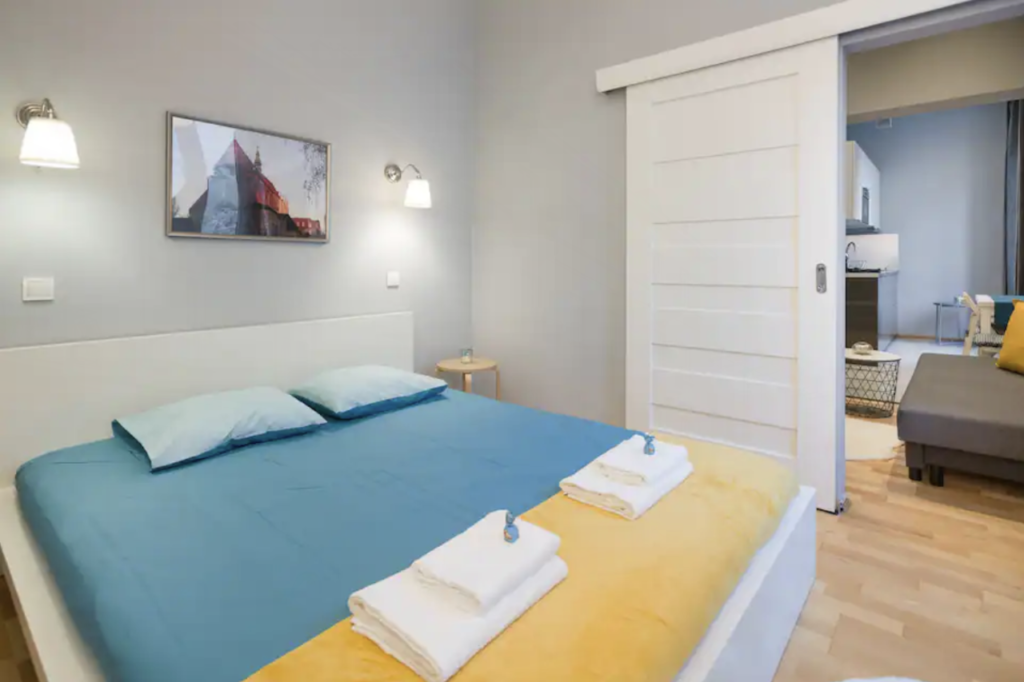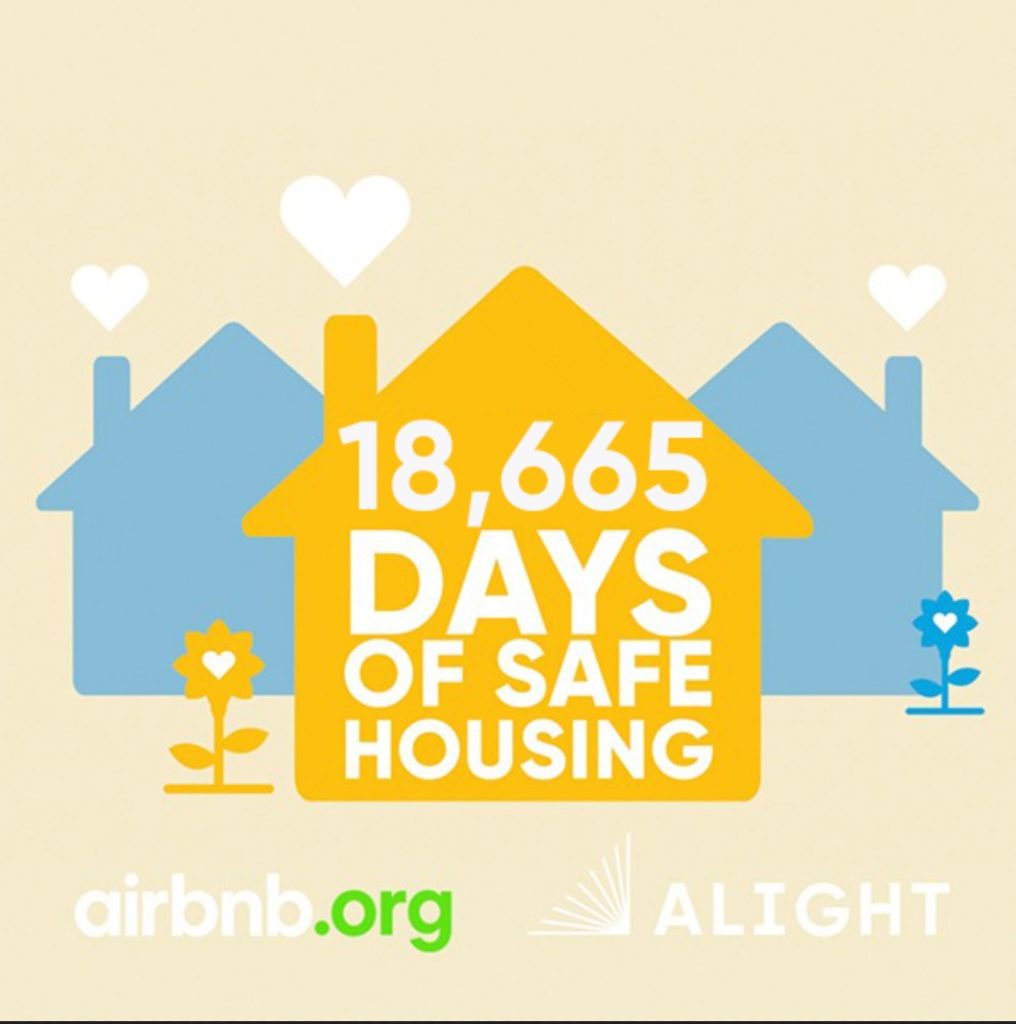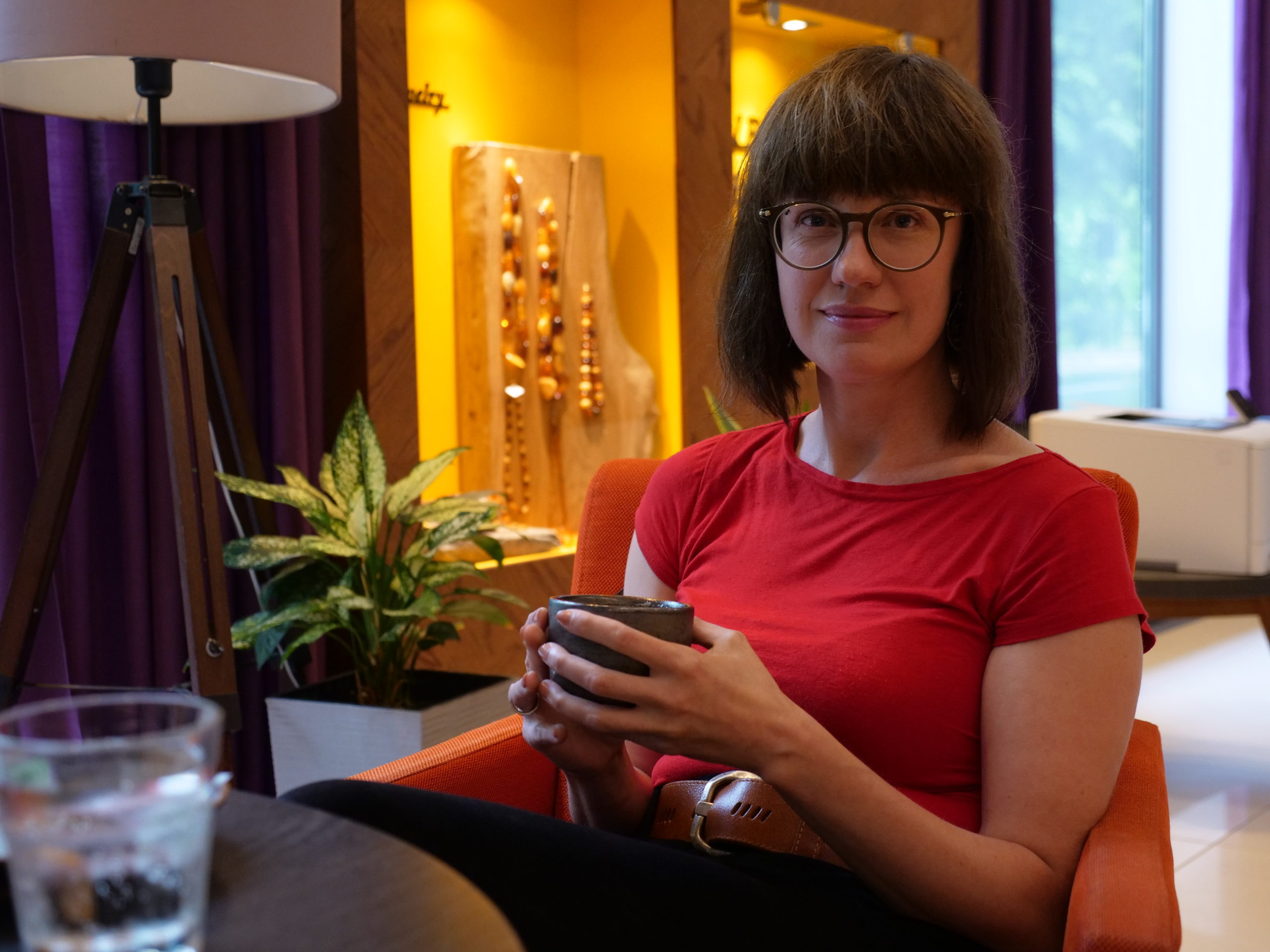When the war broke out in Ukraine, Mariola and her family’s first instinct was to help. Like many people living in Poland, they started taking stock of what they could offer. What resources did they have to help their neighbors forced to flee across the border? They considered making the journey from their home in Krakow to the border at Przemysl, where they knew lots of Poles and international responders were flocking to lend their talents and time. But after some thought, Mariola realized she had one of the most important resources to offer right at home in Krakow: comfortable short term housing with vacancies. Mariola and her husband have been Airbnb hosts for years; they got started hosting to save up for a family trip back in 2012. They now host several properties around historic Krakow, many of which are presently home to Ukrainian families through Alight’s Airbnb.org partnership.
Early March in Poland is Carnival season, which is usually a time for celebration and special treats ahead of Lent. But given the war, the mood at that time was solemn. Mariola wasn’t sure how to observe, if at all. After some thinking, Mariola and her eight-year-old son, Ryszard, decided that even if it didn’t feel like a time for celebration, they could still make treats to share. They made paczki, jelly filled Polish donuts enjoyed on Tłusty Czwartek, or Fat Thursday (celebrated the week before Ash Wednesday). Together, Mariola and Ryszard made tons of the glazed treats to share with their Airbnb guests, many of whom were Ukrainians who had just managed to flee dangerous and terrifying situations. Mariola planned to simply drop the goodies off at each flat’s doorstep; to her, it’s vital to respect the privacy of her guests who are dealing with the trauma of war and may not be interested in talking about their experiences. Still, some families insisted on inviting her and Ryszard in to visit. She could tell that for many, these doughy treats were one small way to feel a little more welcome in this new and strange time.
Though Mariola is sure to respect the boundaries of her guests, she believes it’s important to make sure they know she’s open to help whenever they need it. To her, helping as a host can be anything from being a listening ear to a travel guide; whether they want to share their stories or simply ask for recommendations in the area, she’s there for them. A few of her guests have turned into colleagues; since Mariola hosts several properties, when a few guests asked if she knew where to find cleaning jobs, Mariola offered them jobs herself.
Some guests she rarely meets, and some she’s formed lasting friendships with. To her, both are success stories. One of Mariola’s guests kept to herself for the duration of her stay. Around a month after she checked out, the woman messaged Mariola asking for her personal address. Mariola didn’t think much of it, but happily provided the information. The next morning, the woman rang the bell at Mariola’s flat, with some chocolates and a fragrant bundle of lavender as a thank you gift. Mariola was touched; she never expected such a gesture, but she will never forget the kindness.

One of Mariola’s Airbnb listings in Krakow.
When another family invited her and her son into their flat, she was surprised in a different kind of way. The family served them pancakes, thin and crepe-like with different jams and honey to compliment the slightly sour taste of the bubble-filled pancakes. The family shared that they made these pancakes with sourdough starter they brought all the way from home. Mariola was so shocked; given only a few hours to pack up their lives and flee, the family had grabbed the sourdough along with their other prized possessions. This starter was a part of their culture and their identity as Ukrainians. Each family’s starter is a little different, they explained, with a slightly different flavor to it, based on active fermentation cultures passed down through their family for many years. Mariola felt so privileged to have been invited in on that legacy.
With each of these stories of connection, Mariola cautions that every family is different and has faced things she will likely never understand. She shared that when guests feel very reserved, she knows that “it doesn’t mean they are not grateful it’s just that their current conditions don’t allow them to express those feelings.” One family from the eastern part of Ukraine stayed with her for about a month before finding another more permanent place to stay. Mariola got to know one of the ladies in the family who was a Russian speaker, Irina. Mariola speaks Russian, so she was happy to chat with Irina whenever she wanted. “She never spoke about where she came from or what happened,” Mariola said, but she did ask for work to keep her mind occupied. The woman joined Mariola’s Airbnb team as a cleaner and was happy to be able to keep busy. They didn’t talk much, Mariola said, but Mariola and Irina would take long walks around the city together, just spending time in each other’s company.
After several months, Irina was ready to share some of her story. Irina spoke about leaving only with their heavy winter clothes and what they could carry. Russian soldiers were invading the village next to theirs and they knew their town would come next. They left quickly, walking for 24 hours with Irina’s two-year-old grandson in their arms, before finally finding a route into Poland. Though she never expected it, Mariola is happy to know that Irina is finally comfortable enough to share some of her family’s experiences. From shared pancakes to lavender gifts, for Mariola, the host experience has been so much more than offering a place to stay. It’s been a way to make friends, be helpful, and simply be there. And perhaps more than anything, these stays have been a place to rest, recover, and begin to heal.

